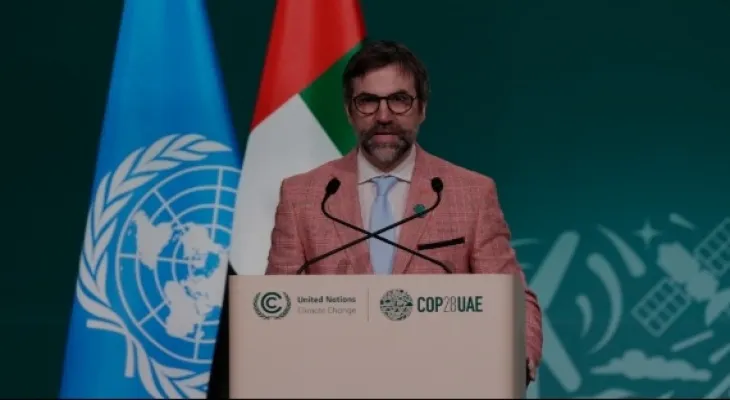Search here
Newspaper
Search here

Arab Canada News
News

Published: December 10, 2023
Environment and Climate Change Minister Steven Guilbeault said the delay in announcing the details of the emissions cap in the oil and gas sector proposed by his government is due to the uniqueness of the plan and the desire to implement it correctly.
Guilbeault also pointed fingers at Opposition Leader Pierre Poilievre, warning that the Conservatives would reverse the progress the Liberals have made in combating climate change.
The federal government announced on Thursday its framework to reduce emissions from the oil and gas sector by 35 to 38 percent below 2019 levels by 2030, using a national cap-and-trade system starting in 2026.
There will also be some flexibility in emissions compliance, with reductions of up to 20 to 23 percent below 2019 levels if emissions exporters purchase carbon offsets or pay into a fund that encourages carbon removal.
The federal government is also expected to issue a draft of the cap regulations next spring, followed by final regulations in 2025.
However, the Liberals first announced their intent to implement an emissions cap in 2021, with the federal government setting a target in its emissions reduction plan last year of 42 percent below 2019 levels.
Guilbeault told CTV's Question Period host Vassy Kapelos—in an interview broadcast Sunday from the COP28 climate conference in Dubai—that the wait was due to the uniqueness of the program.
Guilbeault added: "It took a little longer to prepare this than we initially expected, because it is the first of its kind in Canadian history." "No government has ever set regulations to ensure that the oil and gas sector reduces its overall pollution. That has never been done."
This announcement also comes in the wake of two recent court rulings that contradict Liberal climate policies.
When pressed on whether those decisions factored into taking more time to announce the emissions cap, or whether the risk of a 2025 election before the cap’s implementation was considered, Guilbeault insisted the delay was only to implement the plan properly.
Guilbeault added: "We wanted to take the necessary time to ensure we got all our efforts in order," referring to consultations with experts, industry, and other stakeholders.
Still, the federal government is "not immune" to the consequences of recent court decisions, according to Guilbeault.
The premiers of Alberta and Saskatchewan said they plan to challenge the emissions cap.
Alberta Premier Danielle Smith also told reporters on Thursday that the cap is "from her perspective" "a clear violation of the constitution" that encroaches on provincial jurisdiction, and she is "prepared to fight this matter in court."
Saskatchewan Premier Scott Moe also told Kapelos, in an interview for CTV’s Question Period aired Sunday, that the oil and gas sector does not need more "layers" of climate policies and regulations, and believes it should be left to find its own ways to meet emissions targets.
In his interview, Guilbeault specifically cited the 2021 Supreme Court ruling that the federal government's carbon pricing system is constitutional because the significant threat of climate change warrants a coordinated national plan.
He said: "We have closely followed the text of the Supreme Court ruling, which is why we feel we are based on very strong legal and constitutional grounds." "Alberta and Saskatchewan are challenging everything we've done when it comes to fighting climate change in the courts. We can expect this will not be an exception."
Guilbeault also targeted Poilievre in his interview, saying the Conservative leader poses a threat to progress in combating climate change.
Comments